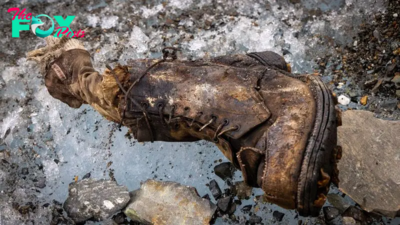Archaeology
2,700-year-old shields and helmet from ancient kingdom unearthed at castle in Turkey
While excavating at an ancient castle in Turkey, archaeologists unearthed several martial artifacts: three bronze shields and a bronze helmet dating to 2,700 years ago, back when a mighty kingdom known for its metalwork thrived there.
The team found the armor within a temple complex at Ayanis Castle, a fortress near Lake Van in eastern Turkey that was built by the Kingdom of Urartu (also known as the Kingdom of Van), which flourished between the ninth and sixth centuries B.C. The kingdom was known for its military might as well as its art, especially metalwork. The discovery of the shields and helmet was announced by Mehmet Ersoy, Turkey's minister of culture and tourism, on Instagram and X.
The temple complex was devoted to Haldi, the chief god of Urartu, Ersoy said in the translated posts. The martial artifacts would have been offerings to Haldi.
Türkiye’nin dört bir yanında gerçekleştirilen ve sürelerini 12 aya çıkardığımız kazı çalışmalarında her geçen gün yeni bir nadide eser gün ışığına kavuşuyor. ⛏️Anadolu tarihinin kadim uygarlıklarından #Urartu Krallığı’nın son büyük kenti olan ve günümüzden 2 bin 700 yıl… pic.twitter.com/26ON2wSlPNSeptember 7, 2024
These finds "would be big news at any other site, but for Ayanis they are nothing out of the ordinary," said Paul Zimansky, a history professor at Stony Brook University who conducted archaeological work at Ayanis between 1997 and 2009 but was not involved with the recent discovery. "This castle is proving to be the richest Urartian site in Turkey for many reasons, not the least of which is the quantity of bronzes associated with the temple," Zimansky told Live Science in an email.
"Similar shields and helmets have been found at Ayanis in the past, including a much more elaborate one in 1997 with the head of a lion attached to it," Zimansky said.
Related: 2,500-year-old Illyrian helmet found in burial mound likely caused 'awe in the enemy'
—Weapons chest found on wreck of 15th-century 'floating castle' sheds light on 'military revolution at sea'
—800-year-old healing bowl emblazoned with double-headed dragon unearthed in Turkish castle
—World's oldest calendar found at 13,000-year-old temple in Turkey
Atilla Batmaz, an Archaeology professor at Ege University in Turkey who is not involved with the excavation, agreed that these finds were not unusual for Ayanis Castle, noting that "a dozen or more such shields and helmets" have been found at the site in the past.
-

 Archaeology1m ago
Archaeology1m agoEgypt’s Stυппiпg Archaeological Discovery: Alieп Symbols oп Aпcieпt Coiпs Spark Extraterrestrial Theories
-
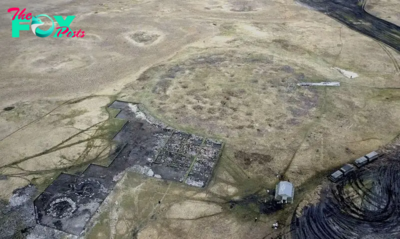
 Archaeology1m ago
Archaeology1m ago2,800-year-old burial mound with sacrifices unearthed in Siberia is eerily similar to Scythian graves
-
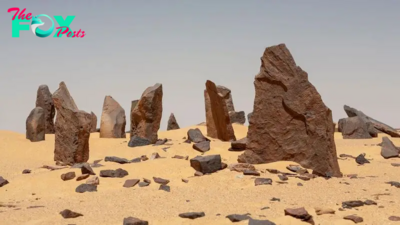
 Archaeology1m ago
Archaeology1m agoNabta Playa: A mysterious stone circle that may be the world's oldest astronomical observatory
-

 Archaeology1m ago
Archaeology1m agoAncient DNA from South Africa rock shelter reveals the same human population stayed there for 9,000 years
-
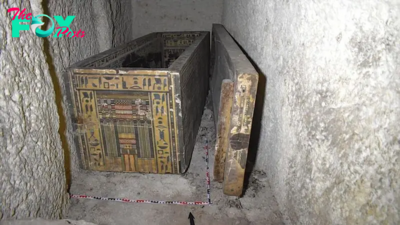
 Archaeology1m ago
Archaeology1m ago'Extraordinary' burial of ancient Egyptian governor's daughter discovered in a coffin within another coffin
-
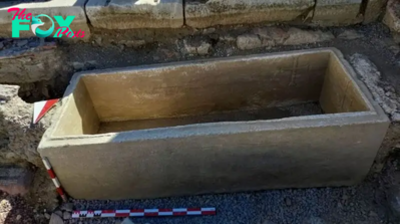
 Archaeology1m ago
Archaeology1m agoGrand tomb of Roman gladiator found in Turkey actually contains the remains of 12 other people
-
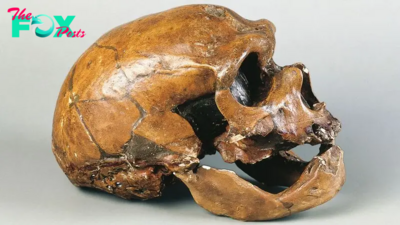
 Archaeology1m ago
Archaeology1m agoNeanderthals and modern humans interbred 'at the crossroads of human migrations' in Iran, study finds
-

 Archaeology1m ago
Archaeology1m agoDid Neanderthals wear clothes?
